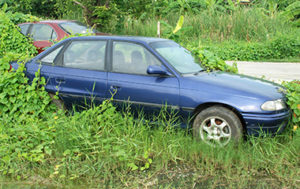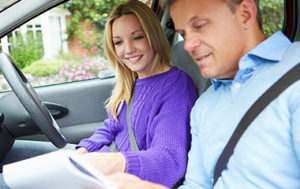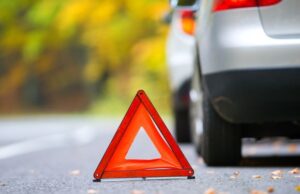How to tax a car
- Ryan Chand
When you own a car, one of your responsibilities is ensuring that your car is properly taxed. A car tax is a mandatory payment to drive your vehicle on public roads legally. But how to go about taxing your car? In the guide, we’ll break down the process and help you navigate how to tax a car.

Understanding the importance of car tax
Before jumping into the process, it’s essential to understand why car tax exists. It helps fund the upkeep of the road infrastructure, including maintenance, repairs and construction of public roads. You could face a fine or even legal action if you do not pay your car tax.
How to check if your car is taxed?
Before paying for car tax, it is a good idea to check if your car is already taxed. If you purchase a used car, you’ll want to ensure the previous owner has paid any outstanding taxes. By entering your car registration, you can quickly check whether a car is taxed through the GOV website.
Different ways you can tax a car
How to tax a car online?
You can tax a car online using the GOV.UK website.
You will need either:
- The 11-digit reference number from your V5C logbook (if you’re the current keeper)
- The 12-digit reference number from the new keeper slip if you’ve just purchased the car and the V5C logbook is not currently in your name.
How to tax a car by phone?
You will need to call the DVLA on 0300 123 4321 to tax a car over the phone. You must have your V5C logbook or new keeper slip to hand.
Taxing your car over the phone means you cannot pay by direct debit.
How to tax a car at the post office?
If you want to tax your car at the Post Office, you can use their Branch Finder tool to locate your nearest branch.
To be able to tax a car at the post office, you will need the following documents:
- Your V5C logbook
- Your V11
- A new keeper slip if you have just bought the car and the V5C logbook is not in your name yet.
- A valid MOT certificate
- A Valid Exemption certificate
There are different ways to pay:
- Direct Debit
- Debit/credit card
- Cash
- Cheque
How much does it cost to tax a car?
You must pay tax when the vehicle is first registered; this covers the car for 12 months. The first time a vehicle is registered, you will pay a rate based on the vehicle’s CO2 emissions. Then, you must pay a car tax every 6-12 months at a different rate.
For a complete cost breakdown, check out the gov.uk website. The price may differ depending on when the car was first registered.
Vehicle tax rates: Cars registered on or after 1 April 2017 – GOV.UK
Vehicle tax rates: Cars registered between 1 March 2001 and 31 March 2017 – GOV.UK
How to renew car tax?
You must renew your car tax yearly to keep driving your vehicle on the public roads legally in the UK. There are various ways to renew your car tax.
If you have a direct debit set up, your car tax payment will be taken automatically. You will receive an email or letter notifying you. As the vehicle’s keeper, you must have a V5C logbook before your car tax can be renewed. If DVLA’s records show no vehicle keeper, the car tax will not automatically renew.
If you do not have a direct debit set up, you must renew your car tax on Taxing a vehicle – GOV.UK. You will need your V5C logbook or your reminder letter (V11).
You can also renew your car tax over the phone by calling the DVLA on 0300 123 4321. Or you can renew your car tax at the Post Office. Ensure you have all your documents to hand, which will help make the renewal process more manageable.
What happens if you don’t tax your car?
Driving an untaxed car can result in penalties and fines or even having your vehicle clamped, which may include additional fees.
| Offence or penalty | Enforcement action |
|---|---|
| Being the registered keeper of an untaxed vehicle. | Being a registered keeper of an untaxed car will result in a late licencing penalty (LLP) letter being issued. The cost of an LLP is set at £80. |
| Using an untaxed vehicle on a public road without a SORN. | Using an untaxed car on a public road without a SORN will lead to an out-of-court settlement (OCS) letter being issued. An OCS letter is set at £30 plus one and a half times the outstanding car tax. |
| Using an untaxed vehicle on a public road with a SORN in force. | Using an untaxed car on a public road with a SORN in force will again result in an OCS letter being issued, which is set at £30 plus twice the outstanding car tax. |
| Keeping an untaxed vehicle. | An out-of-court settlement letter will be issued for keeping an untaxed car, costing £30 plus one and half times the outstanding tax. |
You can learn more about vehicle tax offences on GOV.UK.
Click here to learn more about how to declare your vehicle SORN.
Final thoughts
Taxing your car is a simple yet essential part of vehicle ownership. By ensuring you have all the required documentation and follow the correct steps, you can avoid unnecessary penalties and help contribute to road service. Stay on top of your car tax to keep your vehicle legally on the road!
Share this article
More posts
Table of Contents

SORN A Vehicle: Should you declare your car off the road | A Choice

Can You Take Your Driving Test In Your Own Car | A Choice

What To Do After A Car Accident | A Choice
